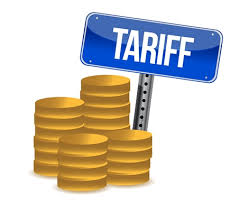ISLAMABAD: With the expiration of the existing tariff policy (2019-24) on March 31, 2024, the Ministry of Commerce is intensifying consultations to develop the next policy, Tariff Policy 2025-29, inviting all stakeholders to contribute their insights.
A meeting of the Tariff Policy Board convened at the ministry on Tuesday, was chaired by Federal Minister Jam Kamal.
According to sources during the session, officials briefed attendees on the ongoing consultations for the National Tariff Policy (2025-29), with the deadline for proposal submissions set for March 31, 2024.
The Minister for Commerce emphasized the role of the NTP in facilitating industries rather than solely as a revenue-generating tool.
Furthermore, the Minister directed the organization of a consultative seminar to gather proposals, emphasizing the necessity for comprehensive consultations to address tariff structure anomalies, enhance manufacturing competitiveness, promote import substitution, bolster employment opportunities, and ensure transparency and predictability in tariff policies.
Secretary Commerce instructed officials to expedite the proposal for the seminar’s approval.
During the meeting, the Joint Secretary (Tariff) outlined the Commerce Division’s mandate regarding tariff policies, briefing on the National Tariff Policy (NTP 2019-24), and the establishment of the Tariff Policy Centre (TPC).
Highlighting the Tariff Policy Board’s role, the official emphasized the creation of a Sub-Committee for thorough evaluation of tariff proposals.
The Minister for Commerce reiterated the NTP’s objective to support industries and stressed the importance of duty-free access to raw materials for manufacturing competitiveness.
Regarding local sectors, the Minister advocated exploring policies to increase competition in protected sectors. He cited the prolonged protection of Pakistan’s auto sector without any desired outcomes.
The Minister was briefed on the absence of Customs duty on about one-third of the industry’s required raw materials and the facilitation of machinery and capital goods imports via the Tariff Policy.
The Minister stressed the strategic use of tariffs to promote industrialization, particularly targeting tariffs towards protecting export-oriented industries for a limited period.
Secretary Commerce echoed the Minister’s sentiments, particularly regarding the auto sector’s lack of competitiveness despite protection measures.




